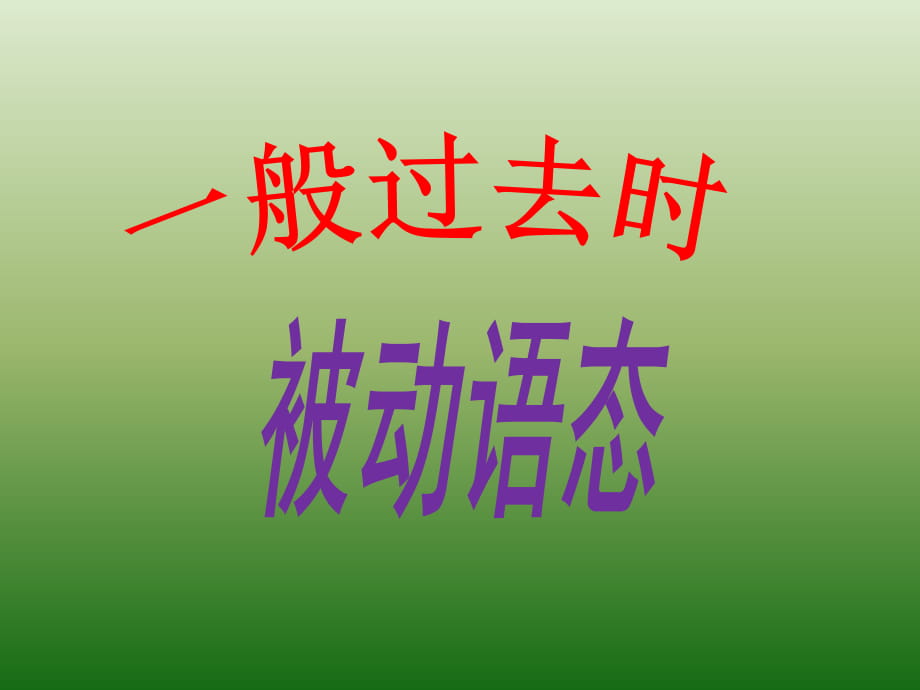《一般過(guò)去時(shí)態(tài) 被動(dòng)語(yǔ)態(tài)》由會(huì)員分享�����,可在線閱讀��,更多相關(guān)《一般過(guò)去時(shí)態(tài) 被動(dòng)語(yǔ)態(tài)(8頁(yè)珍藏版)》請(qǐng)?jiān)谘b配圖網(wǎng)上搜索�����。
1�、 主動(dòng)語(yǔ)態(tài)表示主語(yǔ)是動(dòng)作的執(zhí)行者�����。例如:Many people spea English. 主語(yǔ)many people是動(dòng)作speak的執(zhí)行的。 被動(dòng)語(yǔ)態(tài)表示主語(yǔ)是動(dòng)作的承受者�。例如:English is spoken by many people.主語(yǔ)English是動(dòng)詞speak的承受者。語(yǔ) 態(tài) 概 述 一般過(guò)去時(shí)被動(dòng)語(yǔ)態(tài)結(jié)構(gòu):was/were +過(guò)去分詞last year.Many trees were planted by us1.They bought a camera last term by them last term.A camera was bought They buil
2�����、t the house last year. He took good care of his sister yesterday. We cleaned our classroom just now. They used this room for resting.The house was built by them last year.His sister was taken good care of by him yesterday.Our classroom was cleaned by us just now.This room was used for resting by them. 2. People there planted many trees last year. Trees _ _by people there last year. (青島市中考題)3. 4. _ this building_(build)last year?were plantedWas built
 一般過(guò)去時(shí)態(tài) 被動(dòng)語(yǔ)態(tài)
一般過(guò)去時(shí)態(tài) 被動(dòng)語(yǔ)態(tài)

